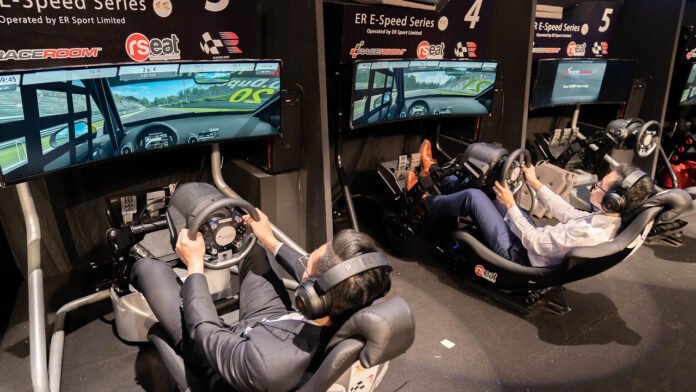The Indian esports landscape has transformed over the past decade, evolving from a niche hobby to a legitimate career path for thousands of young Indians. What began as casual gaming sessions in cyber cafes has now blossomed into a multi-crore industry, attracting massive audiences, corporate sponsorships, and international recognition.
The surge in competitive gaming has been particularly remarkable, with platforms facilitating everything from amateur tournaments to professional leagues. The integration of modern technologies has made esports more accessible than ever, and possibilities like esports crypto betting with Coinplay have introduced new dimensions to fan engagement. This technological advancement has helped legitimise esports as both a spectator sport and a viable business opportunity.
Major Tournaments Shaping India’s Esports Scene
India has witnessed the emergence of several prestigious esports tournaments that have put the country on the global gaming map. The ESL India Premiership, one of the country’s most prominent multi-game tournaments, has consistently attracted top-tier talent and substantial prize pools. Similarly, the PUBG Mobile India Series and Free Fire India Championship have drawn millions of viewers, demonstrating the massive appetite for competitive gaming content.
International tournaments have also recognised India’s growing influence in the esports domain. Events like the VALORANT Champions Tour and CS:GO competitions have featured Indian teams competing against global powerhouses, showcasing the skill level of local players. These tournaments have created a structured pathway for amateur players to transition into professional esports careers.
The tournament ecosystem has also fostered grassroots development through regional and college-level competitions. These events serve as talent incubators, identifying promising players who can eventually represent India on international stages.
Impact on Youth Culture and Career Prospects
Esports has fundamentally altered how young Indians perceive gaming, transforming it from a recreational activity into a legitimate career option. Parents, initially sceptical about their children’s gaming pursuits, are now recognising the potential for substantial earnings and career growth in the industry. This shift in perception has been crucial in nurturing talent and encouraging young players to pursue esports professionally.
The industry has created diverse career opportunities beyond just playing professionally:
- Professional gaming: Competing in tournaments and leagues.
- Content creation: Streaming and video production.
- Coaching and analysis: Training upcoming players and teams.
- Event management: Organising tournaments and competitions.
- Marketing and sponsorship: Brand partnerships and promotions.
- Technical support: Broadcasting and production roles.
Educational institutions have responded to this growing interest by developing by offering comprehensive game design and development courses.
Growth Statistics of Indian Esports
The gaming market in India continues to expand, with numbers speaking volumes about the industry’s pace:
- Online gaming base: 488 million online gamers in 2024, projected to reach 517 million in 2025.
- Mobile gaming market: Over 568 million mobile gamers, making India the largest mobile gaming market by user base globally.
- Esports market value: Projected esports market revenue of US$139.3 million in 2025, expected to grow at 5.78% CAGR to reach US$174.4 million by 2029.
- Revenue growth: India esports market valued at USD 200.7 million in 2024, expected to reach USD 1,088.4 million by 2033 with an 18.40% CAGR.
- Viewership: 17 million esports viewers in 2021, with projections suggesting 85 million viewers across 20 different streaming platforms in 2025.
Notably, India’s approach to gaming regulation remains complex and fragmented, with different states implementing varying policies. While there isn’t comprehensive central government regulation specifically for esports, the industry operates within existing legal frameworks.

Main Industry Challenges
Despite remarkable growth, the Indian esports industry faces several significant challenges that require immediate attention and strategic solutions.
Infrastructure and Connectivity Issues
Internet connectivity remains a major bottleneck, particularly in tier-2 and tier-3 cities where much of India’s gaming talent resides. Inconsistent broadband speeds and frequent outages can severely impact competitive performance, creating an uneven playing field between urban and rural players. The lack of dedicated gaming centres and practice facilities outside major metropolitan areas further compounds this challenge.
Power supply irregularities in many regions add another layer of complexity, as competitive gaming requires consistent electricity for extended periods. These infrastructure gaps limit the potential talent pool and create barriers to entry for aspiring professional players.
Limited Corporate Sponsorship and Investment
While some major brands have entered the esports space, the overall level of corporate sponsorship remains insufficient compared to traditional sports. Many companies still view esports as a risky investment due to unfamiliarity with the medium and uncertain return on investment calculations. This funding gap limits the growth potential of teams and tournaments, affecting prize pools and player salaries.
The absence of dedicated esports investors and venture capital interest has also slowed the development of supporting infrastructure such as training facilities, coaching academies, and talent management companies.
Future Opportunities and Growth Potential
The future of Indian esports appears promising, with several factors aligning to accelerate growth in the coming years. The recognition of esports as a legitimate sport could create a more favourable environment for expansion. Right now, India’s esports industry stands at a pivotal moment, with unprecedented opportunities for growth balanced against significant challenges that require strategic solutions.
The combination of a massive gaming population, increasing corporate support, and improving infrastructure creates a foundation for sustained expansion. Success will depend on addressing connectivity issues, attracting investment, and maintaining responsible gaming practices while nurturing the next generation of world-class players and content creators.
















